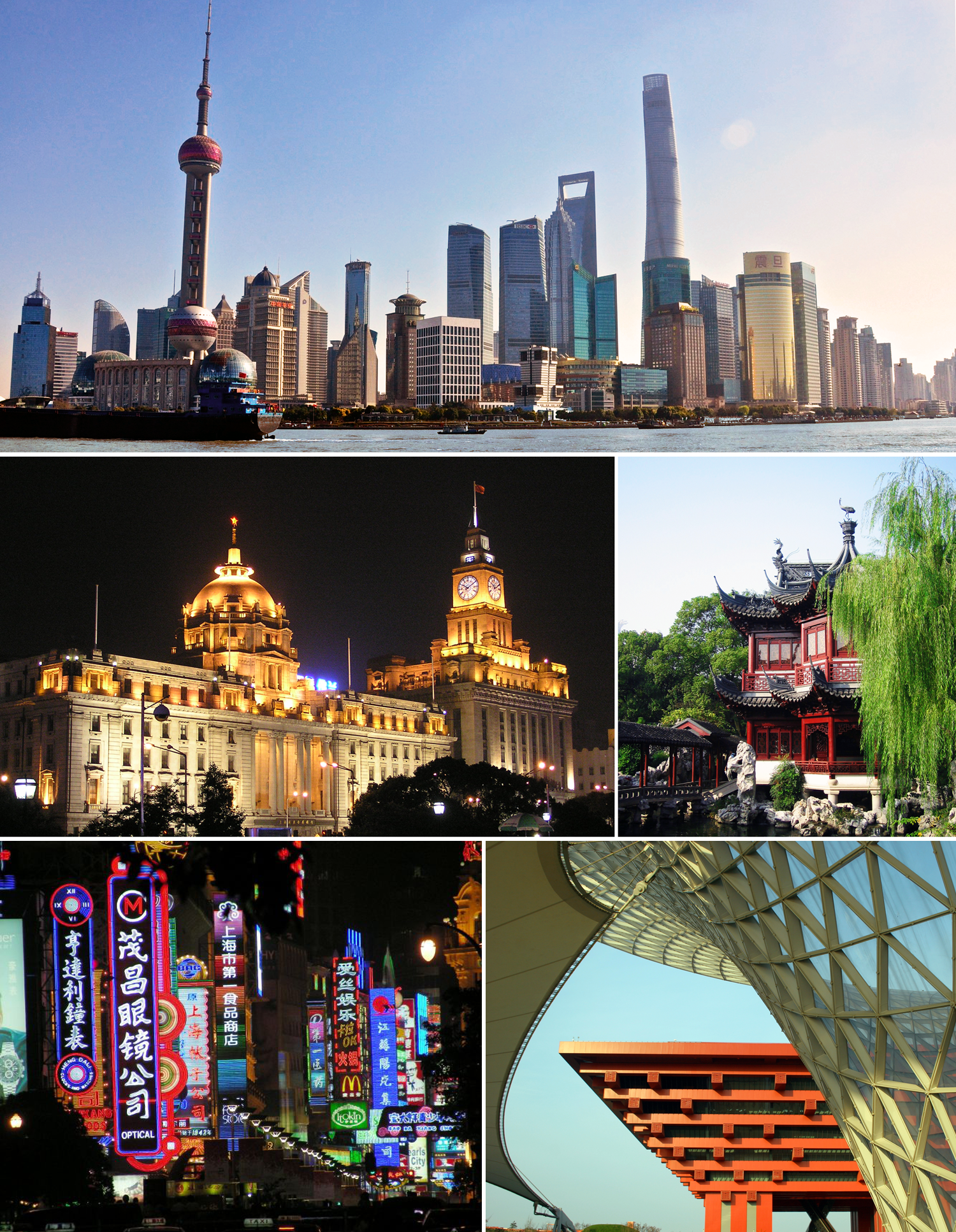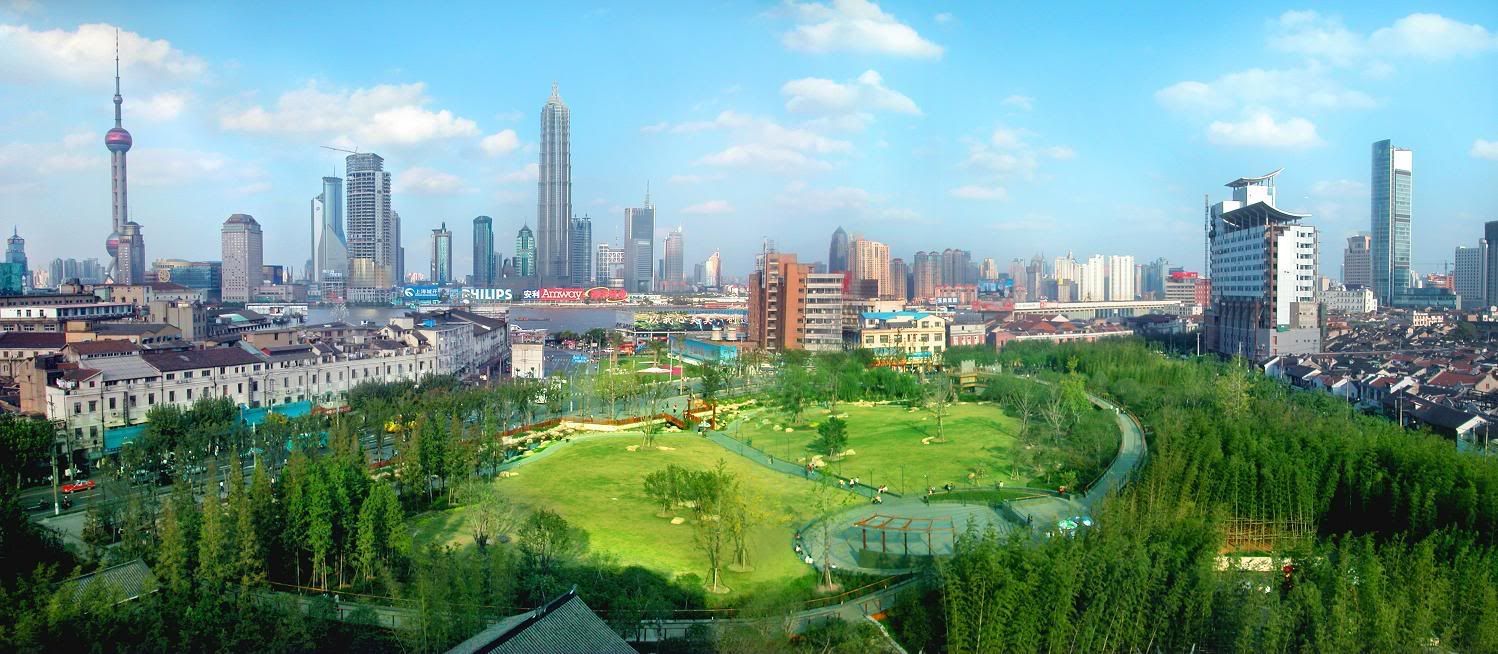Shanghai
the most developed city in China
by Mike (LISHD1103)
introduction
Shanghai is the largest city by population in the People's Republic of China (PRC) and the largest city proper by population in the world. It is one of the four province-level municipalities of the PRC, with a total population of over 23 million as of 2010. It is a global city, with influence in commerce, culture, finance, media, fashion, technology, and transport. It is a major financial center and the busiest container port in the world.Located in the Yangtze River Delta in eastern China, Shanghai sits at the mouth of the Yangtze River in the middle portion of the Chinese coast. The municipality borders Jiangsu and Zhejiang Provinces to the west, and is bounded to the east by the East China Sea.
For centuries a major administrative, shipping, and trading town, Shanghai grew in importance in the 19th century due to European recognition of its favorable port location and economic potential. The city was one of several opened to foreign trade following the British victory over China in the First Opium War and the subsequent 1842 Treaty of Nanking which allowed the establishment of the Shanghai International Settlement. The city then flourished as a center of commerce between east and west, and became the undisputed financial hub of the Asia Pacific in the 1930s. However, with the Communist Party takeover of the mainland in 1949, trade was reoriented to focus on socialist countries, and the city's global influence declined. In the 1990s, the economic reforms introduced by Deng Xiaoping resulted in an intense re-development of the city, aiding the return of finance and foreign investment to the city.
Shanghai is a popular tourist destination renowned for its historical landmarks such as The Bund, City God Temple and Yuyuan Garden, as well as the extensive and growing Lujiazui skyline. It has been described as the "showpiece" of the booming economy of mainland China.
Economy
Shanghai is the commercial and financial center of mainland China, and ranks fifth in the 2011 edition of the Global Financial Centres Index published by the City of London.It was the largest and most prosperous city in the Far East during the 1930s, and rapid re-development began in 1990s. This is exemplified by the Pudong District, which became a pilot area for integrated economic reforms. By the end of 2009, there were 787 financial institutions, of which 170 were foreign-invested. In 2009, the Shanghai Stock Exchange ranked third among worldwide stock exchanges in terms of trading volume and sixth in terms of the total capitalization of listed companies, and the trading volume of six key commodities including rubber, copper and zinc on the Shanghai Futures Exchange all ranked first in the world.In the last two decades Shanghai has been one of the fastest developing cities in the world. Since 1992 Shanghai has recorded double-digit growth almost every year except during the global recession of 2008 and 2009. In 2011, Shanghai's total GDP grew to 1.92 trillion yuan (US$297 billion) with GDP per capita of 82,560 yuan (US $12,784). The three largest service industries are financial services, retail, and real estate. The manufacturing and agricultural sectors accounted for 39.9 percent and 0.7 percent of the total output respectively. Average annual disposable income of Shanghai residents, based on the first three quarters of 2009, was 21,871 RMB.
Located at the heart of the Yangtze River Delta, Shanghai has the world’s busiest container port, which handled 29.05 million TEUs in 2010. Shanghai aims to be an international shipping center in the near future.
Shanghai is one of the main industrial centers of China, playing a key role in China’s heavy industries. A large number of industrial zones, including Shanghai Hongqiao Economic and Technological Development Zone, Jinqiao Export Economic Processing Zone, Minhang Economic and Technological Development Zone, and Shanghai Caohejing High-Tech Development Zone, are backbones of Shanghai's secondary industry. Heavy industries accounted for 78% of the gross industrial output in 2009. China’s largest steelmaker Baosteel Group and Jiangnan Shipyard, one of China's oldest shipbuilders are both located in Shanghai. Auto manufacture is another important industry. The Shanghai-based SAIC Motor is one of the three largest automotive corporations in China, and has strategic partnerships with Volkswagen and General Motors.
sport
Shanghai is home to several professional soccer teams, including Shanghai Shenhua of the Chinese Super League, one of the China's most popular and successful. The Shanghai Sharks of the Chinese Basketball Association developed Yao Ming before he entered the NBA. Shanghai also has an ice hockey team, China Dragon, and a baseball team, the Shanghai Golden Eagles, which plays in the China Baseball League.Shanghai is the hometown of many outstanding and well-known Chinese professional athletes, such Yao Ming, the 110-meter hurdler Liu Xiang, and the table-tennis player Wang Liqin.
Beginning in 2004, Shanghai started hosting the Chinese Grand Prix, one round of the Formula One World Championship. The race was staged at the Shanghai International Circuit. In 2010, Shanghai also became the host city of German Touring Car Masters (DTM), which raced in a street circuit in Pudong.
Shanghai also holds the Shanghai Masters tennis tournament, and the BMW Masters and WGC-HSBC Champions golf tournaments.







No comments:
Post a Comment